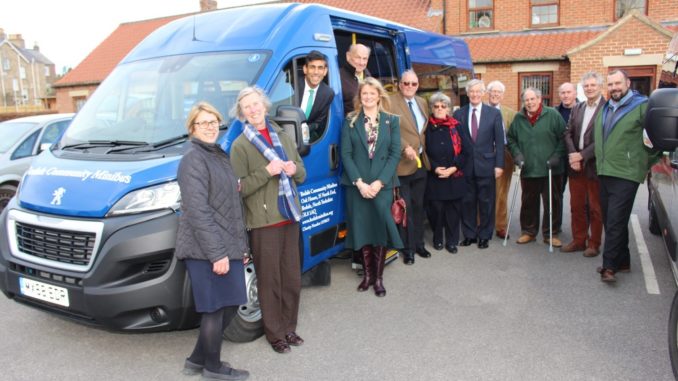
North Yorkshire County Council, which came under fire for cutting more bus services than any other council in the country during austerity, has signalled its determination to develop a fresh strategy to improve access to public transport.
Council leader Councillor Carl Les said he was optimistic the county’s share of the £5bn for buses, cycling and walking Boris Johnson announced in February last year, would be a boost for many communities.
Cllr Les was speaking ahead of the authority’s members being asked to consider ways in which public transport could be provided across the largely rural county to fit in with the Government’s Bus Back Better strategy, which was published earlier this month.
The strategy states every local authority and bus operator in England should be in a partnership or franchising arrangement, which will need to produce bus service improvement plans by the end of October.
Councils must also set out a roadmap to better services for passengers and communities, urban and rural, which is “fully informed by local needs”.
In 2015, the Campaign for Better Transport highlighted how North Yorkshire was cutting £500,000 of subsidies for uneconomical routes after a £2m reduction in subsidies in 2014 led to 90 different bus services being reduced, altered or axed altogether.
Cllr Les said the Government funding would enable the authority to take a fresh view on public transport.
He said: “Inevitably in the ten years of austerity we had to make savings and one of the savings that we made was on some subsidised bus routes, although we took it down to a certain limit where we felt that we wouldn’t want to cut any further.”
Cllr Les suggested the Campaign for the Protection of Rural England’s call for hourly bus services in villages was unrealistic and backed the calls from some North Yorkshire villages to examine if demand-responsive transport could be a solution.
He said: “Demand-responsive transport is a very exciting idea. I’m a great believer in it, but it’s just how do we introduce the service so it meets demand that’s there.
“I don’t think anybody wants to see empty buses running around, there’s a cost to it and it’s not right for the carbon footprint.”
Cllr Les highlighted how the council had already introduced different types of public transport to meet specific community requirements.
He cited how the council had bought a car for use by Pateley Bridge residents who have no access to transport, may live in a rurally isolated location and require door-to-door assistance with local transport needs.
Passengers can pay 45p a mile for visits to doctors, dentists and to go shopping.
Thirsk and Malton MP Kevin Hollinrake said it would be important to make sure resources are used wisely as Government funding would be thin on the ground, particularly post-Covid.


Be the first to comment